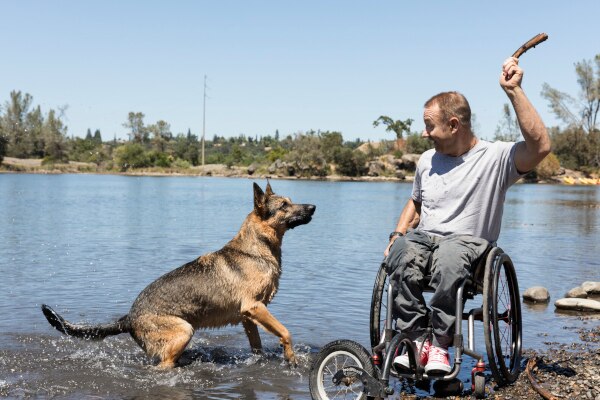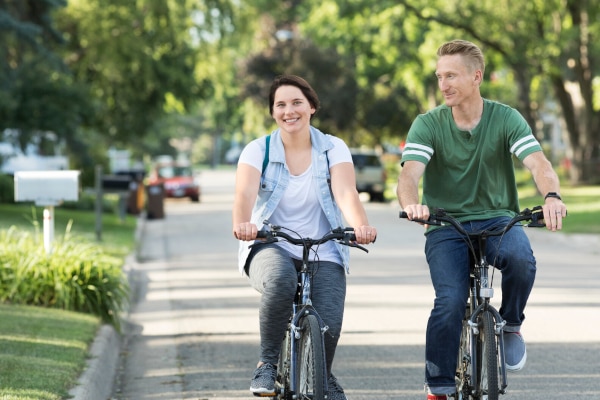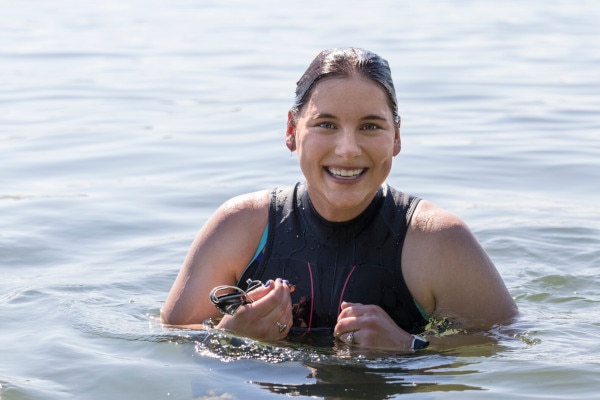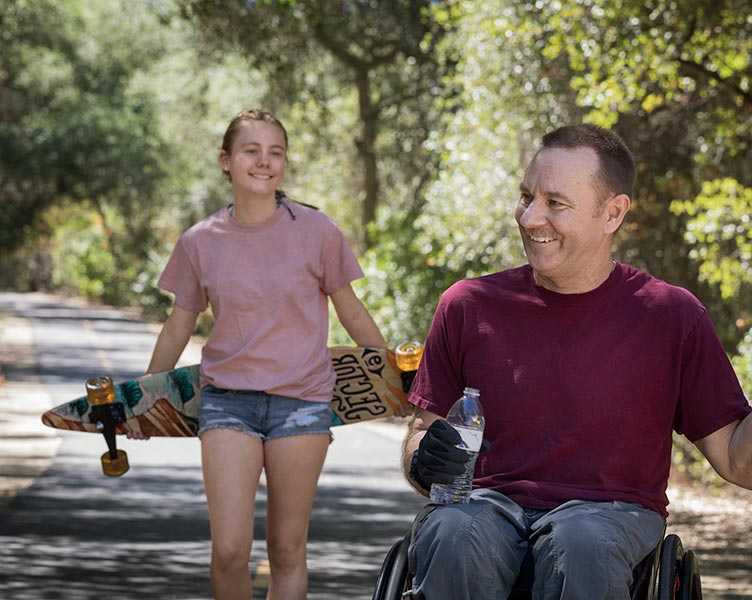An active lifestyle has many physical and mental benefits that promote overall wellbeing. It can give you more energy, make you stronger, and can even impact bowel management.
Daily exercise: the benefits!
Always consult your healthcare provider about what level of physical activity is right for you.

Boost confidence
Regular exercise a great way to get in touch with yourself. If you live with a bowel dysfunction, this may feature prominently in how you define yourself. Physical activity can help you to appreciate your body, learn what you can do, and develop your own identity and self-awareness.
Exercise can actually help you feel more energized and promotes mental wellbeing, so incorporating it into your routine can help you live the best possible life.
Manage stress
With this boost to your confidence and energy levels, you may also find you can handle stress better. Since challenges can arise during TAI, this may ultimately help you manage issues more effectively.
For some, exercises like swimming, running or cycling also provide quiet alone time and gives you a chance to reflect on your thoughts.
An opportunity for socializing
Activity and socializing can often go hand in hand. Getting involved in sports or activities in your community can immediately expand your social circle. You may even make some new friends. If your bowel management routine has got you down, a different social group and activity may be exactly what you need.
Physical activity that's right for you
Everyone has a physical activity level that is right for them, and what works for one person may not for another. This is normal, so take time to figure out what works best for you in partnership with your healthcare provider.

Connect with community
You don’t need to look far to find simple ways to get more exercise. Exploring your community on foot or taking a bike ride are both great ways to burn calories without much planning. Challenge yourself by lengthening your routes or taking more difficult paths. When you push yourself to go further, your strength and endurance will improve.
Swimming and water aerobics are also great ways to stay fit! With your weight supported by the water, swimming gives your muscles a workout with minimal risk of injury. Water activities can also help you develop more flexibility, and it's a good option if you have arthritis.
Exercising at home
You don’t always have to venture out to get fit, and many people exercise from the comfort of home. Investing in weights and trying strength exercises can be a great option if you have limited mobility.
Strength training with weights or resistance bands can also help maintain or build muscle, increasing your endurance, and can reduce the risk of joint injury, helping you stay lean and healthy.
Organized sports
Participating in team sports can be a great way to stay fit, because others are counting on you!
Team sports offer something for everyone - whether you want to play competitively or keep it casual. While you might immediately think of football, tennis, or basketball, the option you choose doesn't need to be highly strenuous. Sports like golf or swimming are a low-impact way to combine exercise with getting fresh air.
Reach out to support groups in your area to find out about local sports clubs that might be right for you.

I don’t normally exercise – what should I do?
Any physical activity is a step in the right direction and can promote a healthier lifestyle, but it's always important to consult your healthcare provider about what exercises are right for you. Start small and build from there, starting with simple activities to get your body used to your new lifestyle.
If you struggle with motivation, reach out to a friend or family member for support. Including other people in your exercise plans can help you stay on track and keep going!



